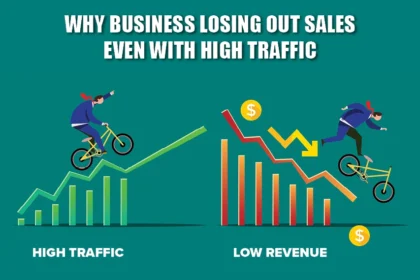Strategic thinking enables teams to anticipate challenges, identify opportunities, and make informed decisions that align with their overarching goals. By cultivating a culture that promotes strategic thinking, organizations can elevate their teams’ long-term vision and position themselves for sustained growth and success.
Imagine a scenario where a team is tasked with developing a five-year plan for their organization. The team must consider a myriad of factors, such as market trends, technological advancements, changing customer preferences, and competitive landscapes. Without strategic thinking skills, the team may struggle to see beyond immediate challenges, fail to anticipate potential disruptions, or make short-sighted decisions that hinder long-term success. In contrast, a team that embraces strategic thinking can navigate complexities, identify innovative solutions, and create a roadmap that leads to a prosperous future.
Recognizing the importance of strategic thinking in driving organizational success, it is essential for leaders to nurture and develop these skills within their teams. By implementing effective strategies and fostering an environment that encourages long-term visioning, organizations can unlock the full potential of their human capital and create a sustainable competitive advantage.
Effective strategies for promoting strategic thinking in an organisation:
Encourage Big-Picture Thinking
One of the cornerstones of strategic thinking is the ability to see the big picture. Encourage team members to look beyond their immediate tasks and responsibilities and consider how their work fits into the larger organizational context. Provide opportunities for team members to engage in discussions about industry trends, market dynamics, and emerging technologies. By promoting a holistic perspective, teams can identify patterns, anticipate changes, and make decisions that align with the organization’s long-term objectives.
Foster a Culture of Continuous Learning
Strategic thinking thrives in an environment that values continuous learning and growth. Encourage team members to stay curious, seek out new knowledge, and challenge their assumptions. Provide access to learning resources, such as workshops, seminars, and online courses, that focus on strategic thinking, decision-making, and problem-solving. By fostering a culture of continuous learning, organizations can equip their teams with the skills and mindset necessary to adapt to evolving challenges and seize new opportunities.
Promote Cross-Functional Collaboration
Strategic thinking often emerges from the intersection of diverse perspectives and expertise. Promote cross-functional collaboration by creating opportunities for team members from different departments to work together on strategic initiatives. Encourage open communication, knowledge sharing, and constructive debate. By bringing together individuals with varied backgrounds and skill sets, organizations can generate innovative ideas, identify blind spots, and develop comprehensive strategies that consider multiple angles.
Embrace Scenario Planning
Scenario planning is a powerful tool for strategic thinking. It involves exploring multiple possible futures and developing contingency plans for each scenario. Encourage teams to engage in scenario planning exercises, where they consider different market conditions, technological disruptions, or regulatory changes. By anticipating potential challenges and opportunities, teams can develop robust strategies that are adaptable and resilient in the face of uncertainty.
Encourage Long-Term Goal Setting
Strategic thinking requires a clear understanding of the organization’s long-term goals and objectives. Encourage teams to set ambitious yet achievable long-term goals that align with the organization’s mission and vision. Break down these goals into specific, measurable, and time-bound milestones to provide a clear roadmap for success. By focusing on long-term goals, teams can prioritize initiatives, allocate resources effectively, and make decisions that contribute to the organization’s sustained growth and competitiveness.
Foster a Growth Mindset
A growth mindset is essential for strategic thinking. Encourage team members to embrace challenges, learn from failures, and continuously seek improvement. Celebrate successes, but also create a safe space for experimentation and risk-taking. By fostering a growth mindset, organizations can create a culture that values innovation, adaptability, and continuous development, enabling teams to think strategically and drive long-term success.
Engage in Team Bonding Activities
Finally, engaging in team bonding activities can be an effective way to foster strategic thinking and elevate a team’s long-term vision. Team bonding exercises that focus on collaboration, communication, and creative problem-solving can help individuals develop a deeper understanding of each other’s strengths, perspectives, and thought processes. These activities can range from strategic planning retreats to simulations and team challenges. By participating in team bonding activities, individuals can practice applying strategic thinking skills in a supportive environment, building trust and strengthening relationships with their colleagues.
Strategic thinking is a vital skill for teams and organizations seeking to navigate the complexities of today’s business landscape and achieve long-term success. By encouraging big-picture thinking, fostering a culture of continuous learning, promoting cross-functional collaboration, embracing scenario planning, encouraging long-term goal setting, fostering a growth mindset, and engaging in team bonding activities, organizations can cultivate a culture that promotes strategic thinking and elevates their teams’ long-term vision. When teams embrace strategic thinking as a core competency and apply it consistently in their work, they unlock the potential for innovation, adaptability, and sustained competitive advantage. By investing in the development of strategic thinking skills within their teams, organizations can position themselves for enduring success in an increasingly complex and dynamic world.










